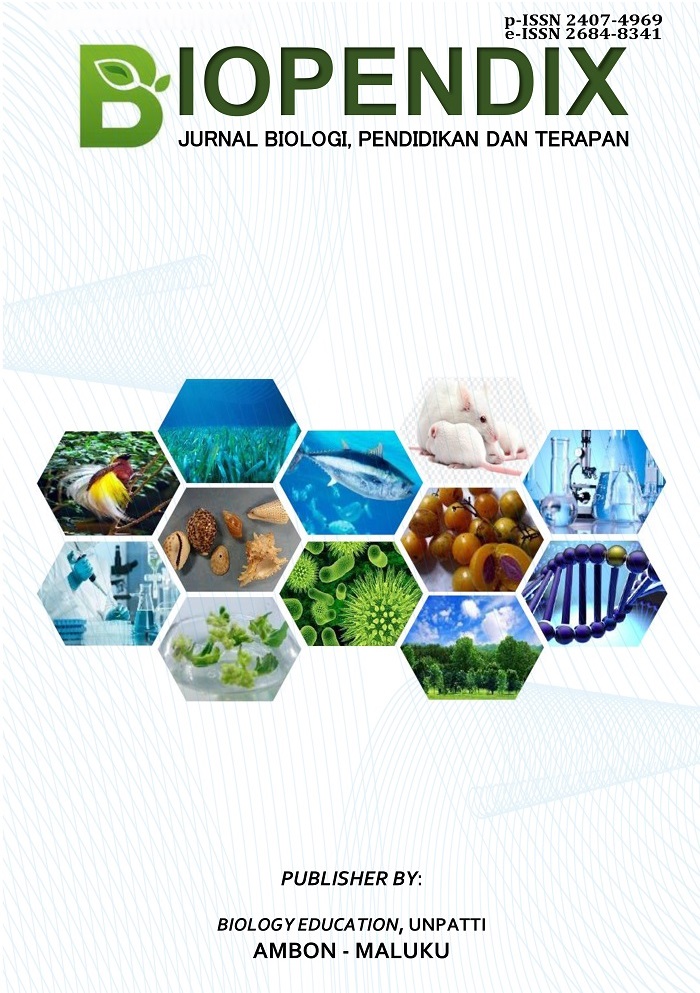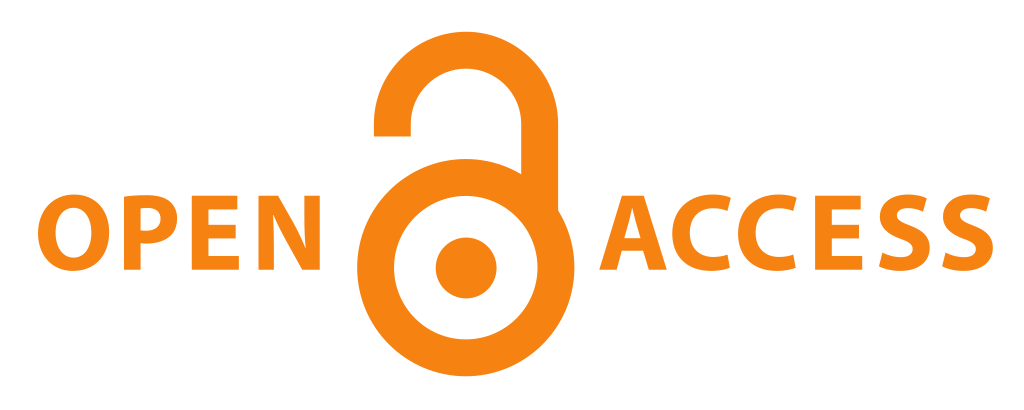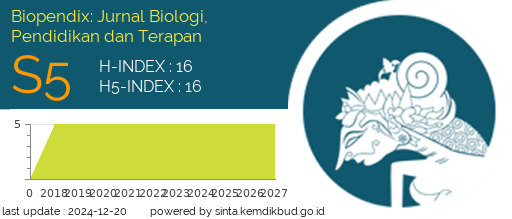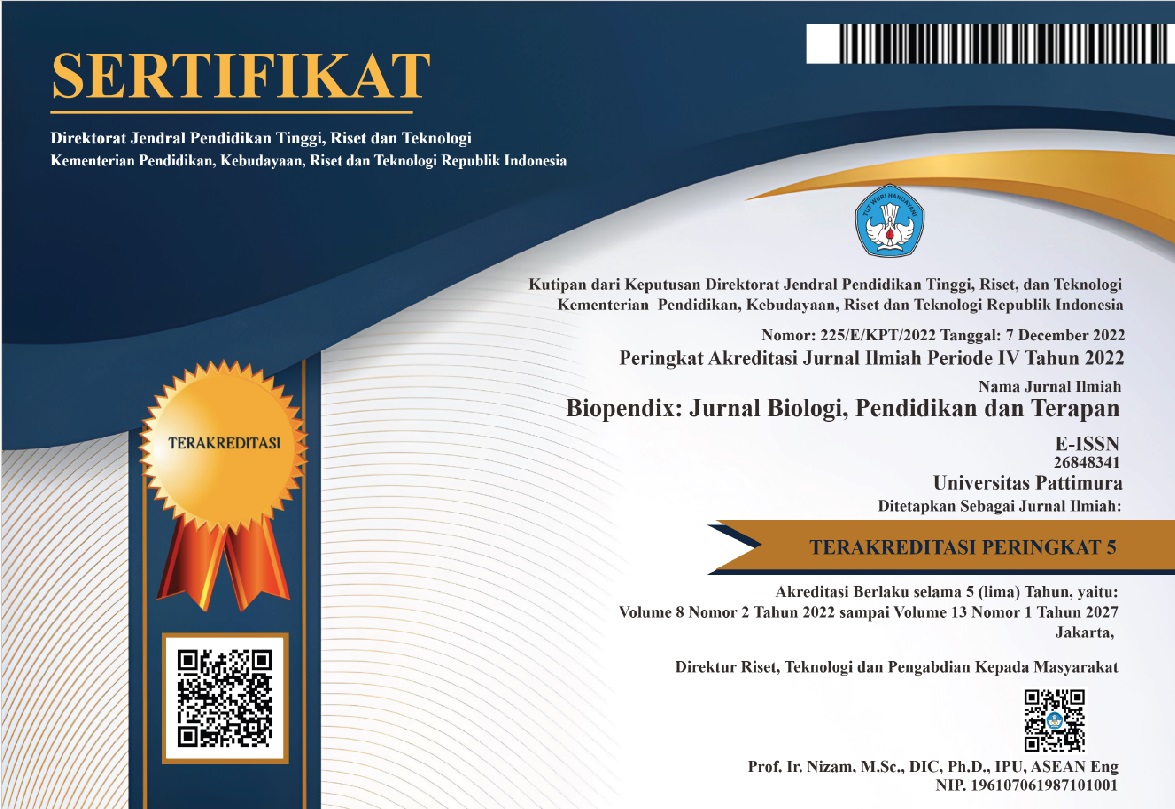Implementation of Environmental Education Courses: Analysis of RPS and Student Learning Experiences
Abstract
This study aims to describe the implementation of Environmental Education (EE) courses for second-semester students in the Biology Education Study Program by examining the relationship between the Semester Learning Plan (SLP), lecturers teaching practices, and students learning experiences. This study employs a qualitative descriptive approach with data collection techniques including document analysis, interviews with lecturers, and student interviews. The analysis reveals that the EE curriculum structure incorporates learning outcomes based on ecological literacy and is implemented through active methods such as recycling projects and field trips to environmental institutions. Students demonstrated positive responses and began to exhibit changes in their attitudes toward the environment, though these changes were not yet fully consistent. The study also highlighted the importance of integrating sustainability values across courses and strengthening affective evaluation. In conclusion, the implementation of PLH contributes to the development of students ecological awareness and is relevant for expansion in biology teacher education.
Downloads
References
Abdul, S., & Hasan, H. (2025). Bentuk dan Teknik Evaluasi Hasil Belajar. JURNAL MUDABBIR, 5, 1–13. https://doi.org/10.56832/mudabbir.v5i1.656
Hadi, S., Sjah, T., & Sarjan, M. (2024). Peran Manusia Dalam Mempertahankan Ketersediaan Sumber Daya Alam Melalui Etika Lingkungan. 4(2), 143–149. https://doi.org/10.58218/lambda.v4i2.907
Hanafi, Y., Aprilia, N., Nurusman, A. A., Purwanto, A., Nadiroh, N., & Budi, S. (2021). Analisis Kebutuhan Pengembangan Instrumen Literasi Lingkungan Untuk Mahasiswa Pendidikan Biologi FKIP Universitas Ahmad Dahlan. Jurnal Eksakta Pendidikan (Jep), 5(2), 174–180. https://doi.org/10.24036/jep/vol5-iss2/604
Joesyiana, K. (2018). PENERAPAN METODE PEMBELAJARAN OBSERVASI LAPANGAN (OUTDOR STUDY) PADA MATA KULIAH MANAJEMEN OPERASIONAL (Survey pada Mahasiswa Jurusan Manajemen Semester III Sekolah Tinggi Ilmu Ekonomi Persada Bunda). PEKA, 6(2), 90–103.
Khotimah, N. V. K., & Wahjudi, E. (2021). Pengaruh Kemandirian dan Gaya Belajar Terhadap Hasil Belajar Dengan Variabel Mediasi Motivasi Belajar. Jurnal Pendidikan Akuntansi (JPAK), 9(2), 280–291. https://doi.org/10.26740/jpak.v9n2.p280-291
Magdalena, I., Afianti2, N. A., & Yanti, A. A. (2020). Penilaian Hasil Belajar Siswa Dengan Kurikulum 2013 Di Sd Islam Asysyakirin. Jurnal Pendidikan Dan Dakwah, 2(3), 466–476.
Matias, D. M. Kone, M. Karim, P G. San Jose, D. Mariano, B. J. Ortiz, A. M. Dubey, P. K. Garcia, G. The need for transnational networks and transdisciplinary education for sustainable development in UNESCO Biosphere Reserves in the Global South. Current Opinion in Environmental Sustainability. https://doi.org/10.1016/j.cosust.2025.101553
Milla, H., & Febriola, D. (2022). Analisis Pengambilan Keputusan Memilih Masuk Program Studi Pendidikan Ekonomi di Fakultas Keguruan dan Ilmu Pendidikan Universitas Muhammadiyah Bengkulu. Jurnal Multidisiplin Dehasen (MUDE), 1(3), 149–158. https://doi.org/10.37676/mude.v1i3.2493
Munawaroh, R. Z., Abroto, A., Nugraheni, A. S., & Carlian, Y. (2022). Penanaman Nilai Karakter Peduli Lingkungan melalui Mata Kuliah Pendidikan Lingkungan Hidup pada Mahasiswa PGMI. Instructional Development Journal, 5(1), 33. https://doi.org/10.24014/idj.v5i1.19102
Najmah, Adelliani, N., Afny, C. S., & Rahmah, A. z. (2023). Analisis Tematik pada penelitian kualitatif. penerbit salemba.
Nikmah, K. (2023). Penerapan Metode Pembelajaran Observasi Lapangan pada Mata Kuliah Studi Arsip untuk Meningkatkan Kemampuan Berpikir Kritis Mahasiswa. ASANKA : Journal of Social Science and Education, 4(1), 26–33. https://doi.org/10.21154/asanka.v4i1.5912
Nugroho, M. A. (2022). Konsep Pendidikan Lingkungan Hidup Sebagai Upaya Penanaman Kesadaran Lingkungan Pada Kelas Iv Min 1 Jombang. Ibtidaiyyah: Jurnal Pendidikan Guru Madrasah Ibtidaiyah, 1(2), 16–31. https://doi.org/10.18860/ijpgmi.v1i2.1691
Puspita, A. M., Utomo, E., & Purwanto, A. (2022). Model Pembelajaran Berbasis Proyek Mata Pelajaran IPA Kelas III Dalam Meningkatkan Kemampuan Berfikir Kreatif Siswa. Tunas: Jurnal Pendidikan Guru Sekolah Dasar, 7(2), 55–65. https://doi.org/10.33084/tunas.v7i2.3194
Rabbianty, E. N. (2022). Pemahaman mahasiswa terhadap literasi lingkungan (ekoliterasi): Potensi dan tantangan menuju kampus ramah lingkungan. 10(2), 163 - 176. https://doi.org/10.36052/andragogi.v10i2.302
Sahala, R., Mauraji, J., Tomahir, A. D., Adam, A., & Silawane, N. (2024). Dampak Metode Pengajaran Terhadap Pembelajaran Mahasiswa Institut Agama Islam Negeri (IAIN) Ternate. Jurnal Ilmiah Wahana Pendidikan, 10(13), 1–23. https://doi.org/https://doi.org/10.5281/zenodo.13149454
Sarabi, S. McPhearson, T. Tunçer, B. Frantzeskaki, N. (2025). eXtended Reality for promoting people- nature relationships in cities : a scoping review. urban sustainability.
Sipayung, M. S., & Kurniawan, D. (2025). Analisis Metode Pembelajaran Aktif dan Literasi Digital terhadap Motivasi dan Hasil Belajar Mahasiswa dengan SEM-PLS. Journal Scientific of Mandalika, 6(5). https://doi.org/10.36312/10.36312/vol6iss5pp1401-1421
Wisman, Y., & Santoso, J. (2024). Pendidikan Lingkungan Hidup Untuk Meningkatkan Ecoliteracy Siswa. Jurnal Ilmiah Kanderang Tingang, 15(1), 29–39. https://doi.org/10.37304/jikt.v15i1.302
Copyright (c) 2025 Muhammad Syahrul, Ine Arini, Marike Muskitta, Husnaini Bahri

This work is licensed under a Creative Commons Attribution-ShareAlike 4.0 International License.
Authors who publish with this Journal agree to the following terms:
- Author retain copyright and grant the journal right of first publication with the work simultaneously licensed under a creative commons attribution license that allow others to share the work within an acknowledgement of the work’s authorship and initial publication of this journal.
- Authors are able to enter into separate, additional contractual arrangement for the non-exclusive distribution of the journal’s published version of the work (e.g. acknowledgement of its initial publication in this journal).
- Authors are permitted and encouraged to post their work online (e.g. in institutional repositories or on their websites) prior to and during the submission process, as it can lead to productive exchanges, as well as earlier and greater citation of published works





 2
2






